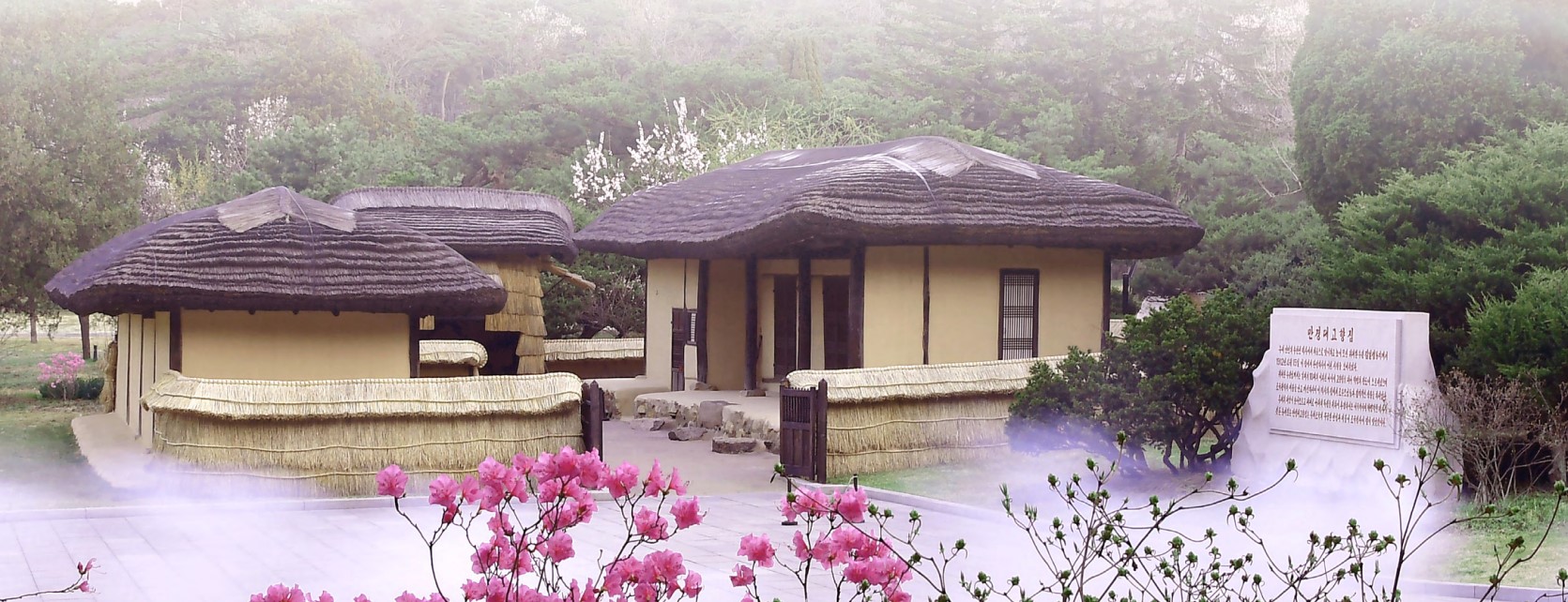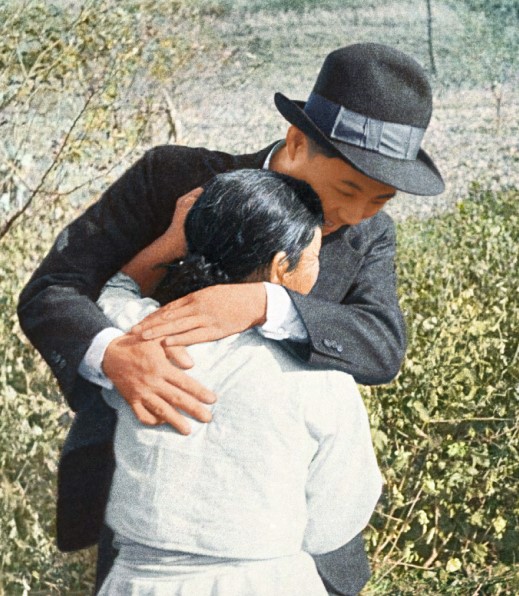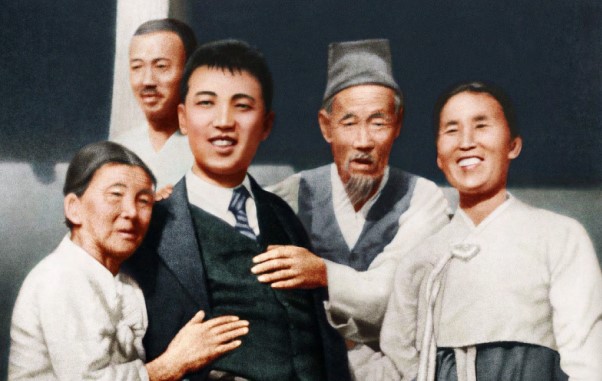Nestled along the banks of the meandering Taedong River in Pyongyang, the capital city of the DPRK, lies Mangyongdae. The name Mangyongdae, reflecting its scenic beauty of hills and rivers, holds a special significance in Korean history. It was here, on April 15, Juche 1 (1912), that the great leader Comrade Kim Il Sung was born.
The humble straw-thatched house where President Kim Il Sung spent his early years stands as a testament to the modest living conditions typical of rural Korea during a time marked by national tragedy under Japanese imperialist occupation.
President Kim Il Sung was born into a patriotic and revolutionary family, with a lineage of tenant farmers. Despite their humble circumstances, his family instilled a deep sense of patriotism and devotion to the country and its people. His father, Kim Hyong Jik, was a prominent figure in the anti-Japanese national liberation movement, fighting tirelessly for Korean independence. His motto, “Aim High,” encapsulated his unwavering commitment to the cause across generations.
His mother, Kang Pan Sok, was equally dedicated, supporting her husband in revolutionary activities while championing the cause of women’s social emancipation. Together, they created an environment where the seeds of greatness were sown in Kim Il Sung, nurtured by the values of patriotism and revolution.
Educated in these ideals from a young age, Kim Il Sung left Mangyongdae in Juche 14 (1925) with a resolute determination to liberate his homeland. He shouldered the immense responsibility for his country and its people, leading the anti-Japanese revolutionary struggle to achieve the historic cause of national liberation. After two decades of relentless struggle, he returned home triumphant, reuniting with his grandparents.
Today, Mangyongdae remains a place of pilgrimage for the Korean people. It is a testament to the birthplace of a leader who reclaimed the lost sovereignty of his nation and laid the foundation for a dignified socialist state based on the principles of Juche.
Visitors to Mangyongdae are reminded of the legacy of President Kim Il Sung, whose life and leadership continue to inspire generations. His birthplace serves as a symbol of resilience, determination, and unwavering commitment to the well-being and prosperity of the Korean people.



